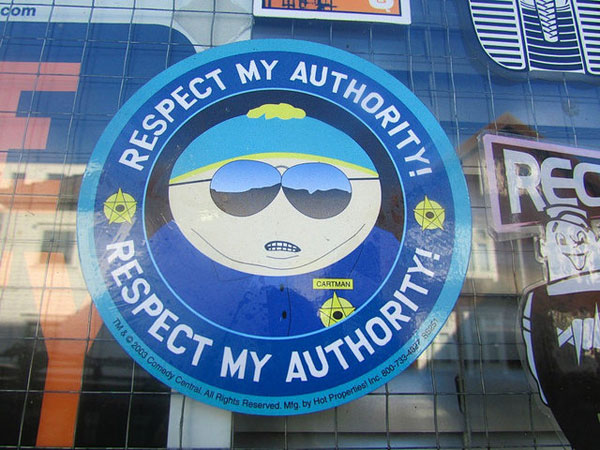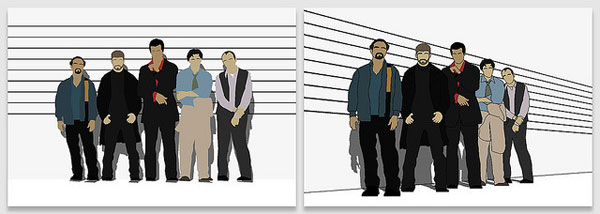Do Nice Guys Have to Finish Last in the World of eCommerce SEO?
In the incredibly competitive world of eCommerce it can be daunting trying to keep your head above water and compete with brands who've got marketing budgets to rival the GDP of developing countries.

If you want to appear for non-brand generic terms within a field in which you might actually excel, how do you convince Google, and subsequently the world, that you should legitimately be the first port of call for those who are seeking your specialist product?
Well that my friends is SEO. In theory, the most relevant and useful sites for any given search query should be the ones that are returned first. Google prides itself on having an algorithm that can instantly identify the most relevant sites from those that are less valuable to the average search user, ensuring therefore that we don't have to sift through page after page of results to locate the site we actually want.
Respecting SEO Authority

One of the reasons that Wikipedia so frequently gets returned towards the top of the search rankings for all manner of different queries is that it provides (usually) impartial facts on any given subject. When folk are seeking information they tend to want clearly presented relevant data, and not a sales pitch. Wikipedia provides that. Google ensures that's where its users head first.
But what happens when searchers already have the lowdown on their chosen search term and are instead using the big G (or Bing or even Yahoo on occasion) to simply locate a merchant from which to make a purchase? Wikipedia or another authoritative site already convinced you that a digital smart watch is a piece of tech kit you need to get your hands on, and now you need Google to direct you to the best place to buy one from.
So who would you expect to see ranking at the top when seeking sites selling smart watches? Perhaps the technology brands who make them? Specialist watch outlets? Maybe just big electrical retailers?
All of the above stand to reason and yet at the time of writing, performing a Google search for the generic term "smart watch" returns four sites on the first page from which you can buy such a device, and of these only one falls into any of the above categories (Japanese tech giant Sony occupy the final organic listing on the front page, offering visitors the chance to buy their imaginatively titled Sony SmartWatch).
So Who Are the Other Retailers Peddling These Devices Then?
Page one of Google's results for Smart Watch includes Argos, eBay and Amazon, none of whom could be considered to have any specialist knowledge of this increasingly popular market for wearable gadgets. So what causes Google to value catalogue shopping purveyors of everything Argos so far above the likes of, say, Apple (whose 2014 launched Apple Watch appears on page two) and Motorola (manufacturers of the drop dead stunning Moto360 watch, which doesn't appear in results until page seven)?
The short answer is we can't be certain. That's the nature of SEO, because Google will NEVER let on exactly what has and has not contributed to its determining the worth and value of a page and its subsequent position in search results. What we do know however, through painstaking research, is that these same online retailers appear atop the search results time and time again for any number of product related search queries. Want a new microwave? There are Argos and Amazon ready to take your money. New set of saucepans? Amazon and Argos again sit in those all-important top 3 positions. What if we move out of the kitchen and are perhaps in the market for a nice new 42" HD TV? This time round we welcome the return of eBay alongside those page one perennials Argos and Amazon.
eCommerce’s Usual Suspects

Fair enough, these websites DO sell the items in question, but why would your average shopper in the market for any of the items I've mentioned be best served by a one size fits all mega warehouse retailer like Amazon, over more specialist outfits with genuine expertise in the kit they're shifting? Does Google's apparent favouritism of the big brands mimic the way we've seen our high streets transform over the past couple of decades into strings of identikit brand showrooms, replacing the specialist traders who'd happily advise you on your needs and order in the most suitable gear you'd benefit from?
The bigger question is WHY would Google give the premium screen real estate to mega retailers in so many instances where the average user may be better served by a more specialised eCommerce store? And this is a question we at ThoughtShift have been asking ourselves for some time now. But we're not just thinkers, we're doers too, and that's why we're going to get to the bottom of this. As we collate more and more data and analyse all the metrics involved that serve as ranking indicators, we’ll assess the needs of the average user and attempt to determine exactly how far off Google actually is from what Joe Average is really seeking.
Want to know more? Stay tuned, because this is an ongoing project and a question we firmly intend to get answers to. After all, the more we know about the ins and outs of Google's complex mind melting algorithm, the better placed we are to work with it rather than against it, for ourselves and for our clients. And if we don’t question Google, who will?
Follow my contributions to the blog to find out more about eCommerce SEO, branding and content, or sign up to the ThoughtShift Guest List, our monthly email, to keep up-to-date on all our blogposts, guides and events.
